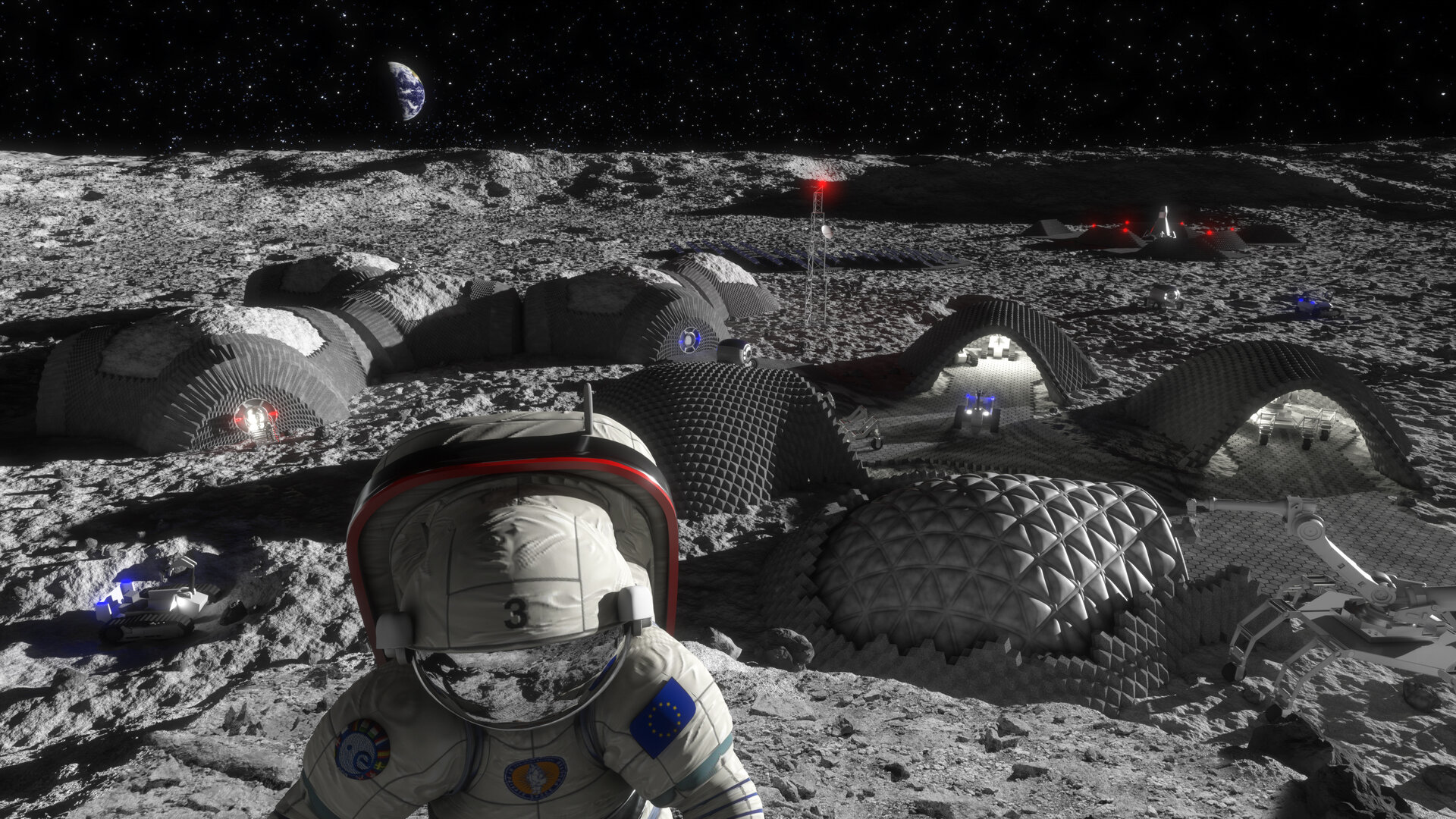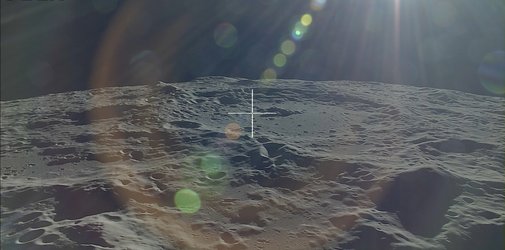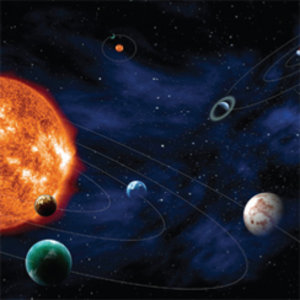Winning ideas for 3D printing on the Moon
While studying lunar base concepts ESA ran a competition, asking: what would you 3D print on the Moon, to make it feel like home? Responses came from all across the globe, and now two winners have been selected, both with ideas linked to nature.
The adult category was won by visual artist Helen Schell from the UK, proposing a ‘magic Moon garden’, printed from recycled coloured plastics.
“What’s missing on the Moon?” wrote Helen. “Colour and living plants. This is an idea for a colourful carpet of interchangeable colour and design, which can be moved and the scale changed wherever you want to site it in your lunar habitat.”
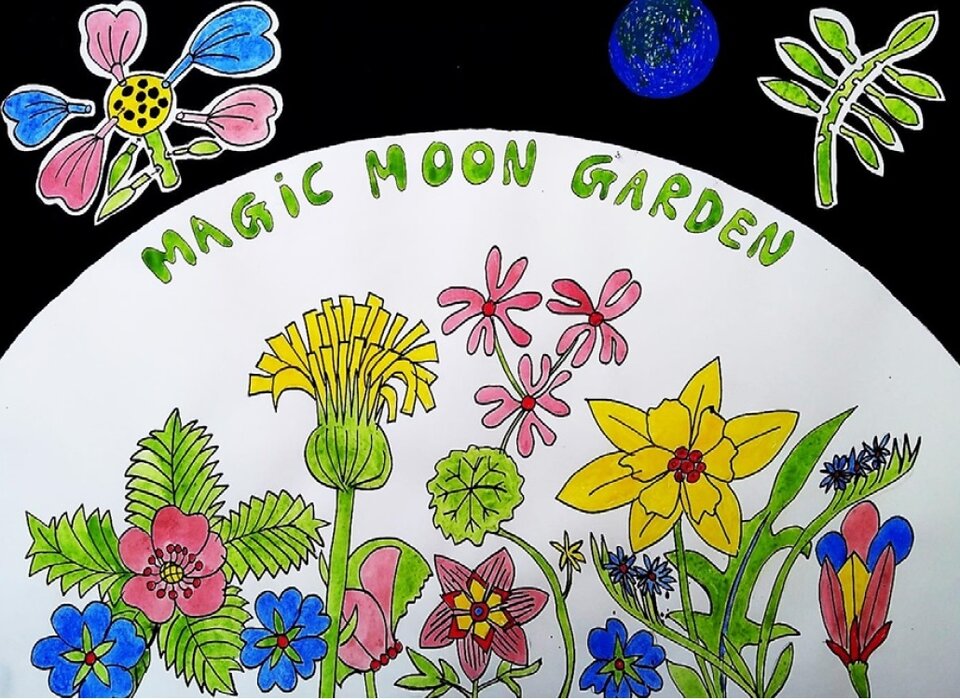
Like real flowers and plants, their 3D printed equivalents would be aromatic, to freshen the air, and perform the work of an air recycling unit changing carbon dioxide to oxygen. They would also ‘grow’ as each plant would be made up of smaller components that could be rearranged or added to over time, as if growing in nature.
The under 18 category was won by Judith de Santiago, a 17-year-old student from Madrid, Spain, who presented a dodecahedron (or 12-sided) plant pot – ideally for a real plant – that also incorporates symbols of distant Earth.
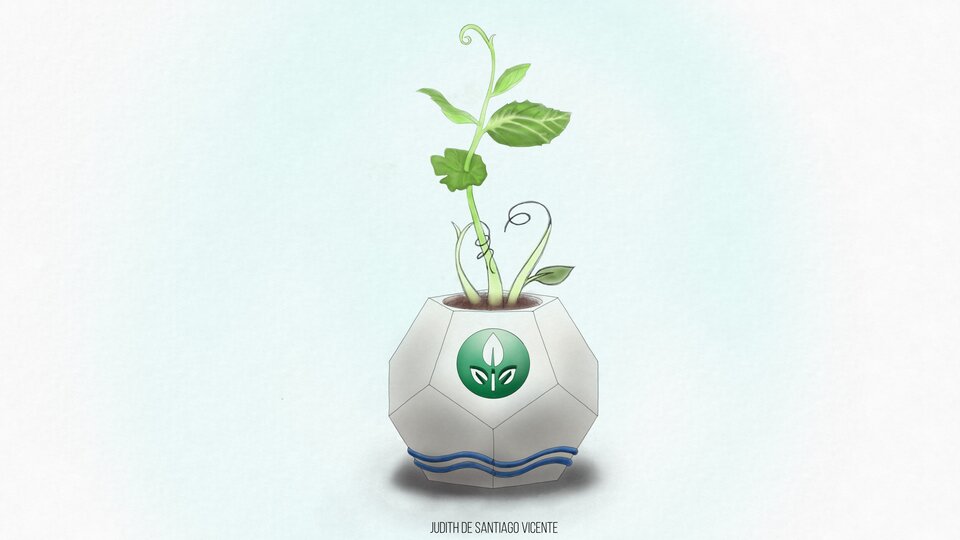
“The blue curves of the bottom represent the waves of the sea,” wrote Judith, “and the green badge with a small plant located at the centre, inspired by Disney’s movie WALL·E, represents the Earth in general.”
Judith ensured her design was 3D printable by actually designing it in a 3D printing format.
The competition received more than a hundred entries from adults and children across the world with other ideas including a mobile lampshade to generate Earth-like colours, an hourglass filled with lunar dust, a glass model of Earth including realistic night lighting, proposals for statues and game boards – not to mention a few suggestions to print a 3D printer.
The idea for the competition came from an ESA-led project studying all the ways 3D printing could be used for the construction, operations and maintenance of a future lunar base: how could the various types of 3D printing meet those needs?
“This competition was a very good initiative to connect our study to the public, and gain insight into human factors involved in lunar settlement,” comments Advenit Makaya, overseeing the lunar 3D printing study.
“These entries give us an idea of what people living on the Moon would want from their everyday surroundings. Common themes that recur, such as to print items that resemble objects from nature, items linked to terrestrial hobbies and musical instruments, as well as reminders of loved ones back home – to help connect back to Earth and diminish any sense of isolation.”
Global space agencies are considering a lunar base as a possible next step in human space exploration, explains Advenit: “3D printing is one of the key building blocks for future space settlement, if we can find ways to make the stuff we need as we go along, rather than rely on costly resupply from Earth.
“And the Moon, at just a few days away from Earth, represents an ideal test case. Nobody else has run such a detailed system level study, looking at lunar 3D printing of everything from large infrastructure and building blocks down to tiny electronic components.”
Supposed through ESA’s Basic Activities, this ‘Conceiving a Lunar Base Using 3D Printing Technologies’ project was run by the URBAN consortium led by Germany’s OHB System AG, with extreme environment specialist Comex in France, Austrian space design company Liquifer Systems Group and spacecraft structure manufacturer Sonaca Space in Germany.















 Germany
Germany
 Austria
Austria
 Belgium
Belgium
 Denmark
Denmark
 Spain
Spain
 Estonia
Estonia
 Finland
Finland
 France
France
 Greece
Greece
 Hungary
Hungary
 Ireland
Ireland
 Italy
Italy
 Luxembourg
Luxembourg
 Norway
Norway
 The Netherlands
The Netherlands
 Poland
Poland
 Portugal
Portugal
 Czechia
Czechia
 Romania
Romania
 United Kingdom
United Kingdom
 Slovenia
Slovenia
 Sweden
Sweden
 Switzerland
Switzerland























